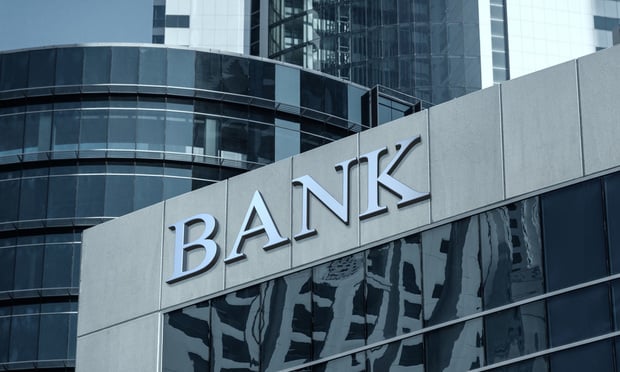Those views were expressed during a press conference held during this week's New York University International Hospitality Industry Investment Conference at the Waldorf-Astoria. The "Coffee Talk" panel included: Eric A. Danziger, CEO of Wyndham Hotel Group; Stephen P. Joyce, president and CEO, Choice Hotels International; Gary M. Mendell, chairman and CEO, HEI Hotels & Resorts; Frits van Paasschen, president and CEO, Starwood Hotels & Resorts Worldwide Inc.; Gilles C. Pelisson, chairman and CEO, Accor; Mitesh B. Shah, senior managing principal and CEO, Noble Investment Group; and W. Edward Walter, president and CEO, Host Hotels & Resorts Inc.
Moderating the panel was Jonathan M. Tisch, chairman and chief executive officer, Loews Hotels, and co-chairman of the board and office of the president, Loews Corp.Although he stated he is typically optimistic, Shah said, "I can't see anything that gives me optimism that a recovery is going to start in short order." Yet he added, "There is no supply growth, so when there is a recovery, it will be more pronounced than it would have been in the other previous recessions of the early '80s."
Shah also added that the next year could present some good buying opportunities. "Over the past four cycles, if you invested between 12 to 18 months of bottom you were able to generate a three to four times equity multiple just by being in game," he said. "You could make a case that investing at some point in time over the next 12 to 18 months could yield positive results. But it's going to take a lot longer and some of the rules are going to change."
Lalia Rach, divisional dean and HVS International Chair, Preston Robert Tisch Center for Hospitality, Tourism, and Sports Management, School of Continuing and Professional Studies, New York University, said a good barometer of how long the slump will last will be the reaction of the baby boomers and the Millennials, those aged 13 to 29. "The boomers are scared," she said. "Their retirements have literally disappeared. They will have to work till they die. Their parents are living longer, and their children won't leave home. So you need to watch how they react.
"The Millennials have never faced this challenge before," she continued. "How they respond is going to tell how long this is going on."
Tisch said that even though consumer confidence is coming back and the stock market has staged a rally, "GM forcing us to 10% unemployment. How you work through these cross currents and which piece of information you base your recovery forecast on will have an impact on how you feel."
Danziger said that he feels a rebound has begun. "To what degree? I can't say," he said. "People are expressing an interest to look, which you must do before you book."
Walter said that the industry did a good job of managing through the early part of the downturn. "As it's gotten worse, the aggressiveness of the response has accelerated," he said. "The good news is, there is opportunity in the fourth quarter to see less of a RevPAR and food and beverage contraction."
The CEOs also discussed two current trouble spots: the lack of group business and the collapse of the luxury and upper upscale segments.
Citing the AIG effect, in which corporations are skittish about hosting lavish events, Joyce said the industry must educate the public about the importance of meetings to businesses. "The reality is, most meetings have people in training and educational sessions," he said. "There are a couple of meals thrown in, and a bad '80s-hair band in the evening. The glitz of what has been portrayed in the press is completely out of character with those meetings."
Pelisson suggested that people may have "changed their habits" regarding meetings through the use of video conferencing. He added that corporations have become more cost conscious as well as aware of the environment impact of travel. Yet Pelisson agreed that the industry must promote "the value of meetings."
Mendell sounded a similar theme. "This downturn is teaching companies how to use technology to control their travel," he said. "I'm not sure that will go away when things strengthen."
However, van Paasschen said the group meeting business would eventually recover. "There is tremendous pent-up demand," he said. "The conventions, the product launches and the training sessions that are such an important part of business will come roaring back. But I don't think it's immediate."
Likewise, the luxury and upper upscale segments are bearing the brunt of the downturn now, but figure to recover their strength once the economy takes an upturn. "Luxury is struggling now," Walter said, "but when the economy recovers, upper upscale and luxury will outperform the rest of the industry."
van Paasschen said that "people love to treat themselves. When they feel flush, people will come back." He also noted that the amount of wealth now being created outside the US will "fuel the appetite for luxury."
Rate cutting was also discussed. "The higher you go in the segments, the worse the business and the more dramatic the discounting," Joyce said, adding that his company has made a concerted effort to hold the line on rates. Midscale properties, he pointed out, can still be profitable with less occupancy.
"There is no question that rate is under pressure, but that is what you would expect at this stage in the cycle," van Paasschen said. "We're in a trough, where we see the impact more on rate than occupancy. There will be bounce back in rate, which will be sustained for a fairly long period of time."
Using promotions was another way hoteliers are drumming up demand. "It's a buyer's market," Pelisson declared. "Consumers will take advantage of those prices."
Nevertheless, van Paasschen said the industry has gotten smarter about reducing rates too drastically. "If rates just go low and we are not sophisticated in the way that we price, we will have a long time in getting our prices back up," he said.
Shah said that the customer has not only gotten more aggressive on rates, but also asking for other free services, such as breakfast and transportation. "You don't see that in a RevPAR decrease, but its affects profitability," he said. "That's not going to change until demand starts increasing. Customers will have the ability to dictate pricing until there is job and demand growth. It took six years to get back there where we were the last time around. When do get back to the rates we saw in 2007?"
Want to continue reading?
Become a Free ALM Digital Reader.
Once you are an ALM Digital Member, you’ll receive:
- Breaking commercial real estate news and analysis, on-site and via our newsletters and custom alerts
- Educational webcasts, white papers, and ebooks from industry thought leaders
- Critical coverage of the property casualty insurance and financial advisory markets on our other ALM sites, PropertyCasualty360 and ThinkAdvisor
Already have an account? Sign In Now
*May exclude premium content© 2024 ALM Global, LLC, All Rights Reserved. Request academic re-use from www.copyright.com. All other uses, submit a request to [email protected]. For more information visit Asset & Logo Licensing.








